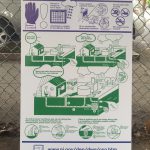New Jersey Future Blog
A Step Away from Cleaner Water
January 10th, 2002 by New Jersey Future staff
- The need to protect New Jersey’s drinking water and tight economic times should help move new watershed rules to the top of the action pile for Bradley M. Campbell, appointed yesterday as the state’s new environmental commissioner.
- Water quality is declining most dramatically in areas of new development, recent state water tests show.
- The state last month contributed $1.05 million to preserve open space and water quality in the Barnegat Bay watershed. But there’s not enough money to buy all the open land necessary to protect the state’s water quality, especially in tight economic times.
- In addition to preserving land, New Jersey needs new rules that steer development away from open areas we depend on for clean water. Such rules are already drafted. Adopting them should be a priority for the new Governor and Mr. Campbell.
WATERSHED RULES CAN PROTECT DRINKING WATER, SAVE MONEY
For several years, the Departmental of Environmental Protection has been drafting new rules for watershed protection with extensive stakeholder involvement.
The rules as first published in July 2000 were opposed by some environmental groups who felt they were not strong enough, and many development interests who felt they were too restrictive. Early in 2001, the Whitman Administration adopted a portion of the rules requiring DEP approval for six homes or more built on septic systems. Acting Governor DiFrancesco extended existing water regulations for another year. They expire in April 2002.
The new rules would steer development away from open lands critical for clean water, and so save millions of dollars that would otherwise be required for land preservation, water clean-up or extension of sewer lines into undeveloped areas.
The state should adopt the new watershed rules as soon as possible, with these important improvements: The DEP should clarify its applications process and terms for denial; it must specify its standards, eliminating phrases such as “wherever possible/attainable;” it must include meaningful public discussions with all interested parties in its review process; and it must resolve the conflicts over the grandfathering of approved sewer service areas. New watershed rules can be a win-win for those who care about the environment, and minimizing state spending.
.
















